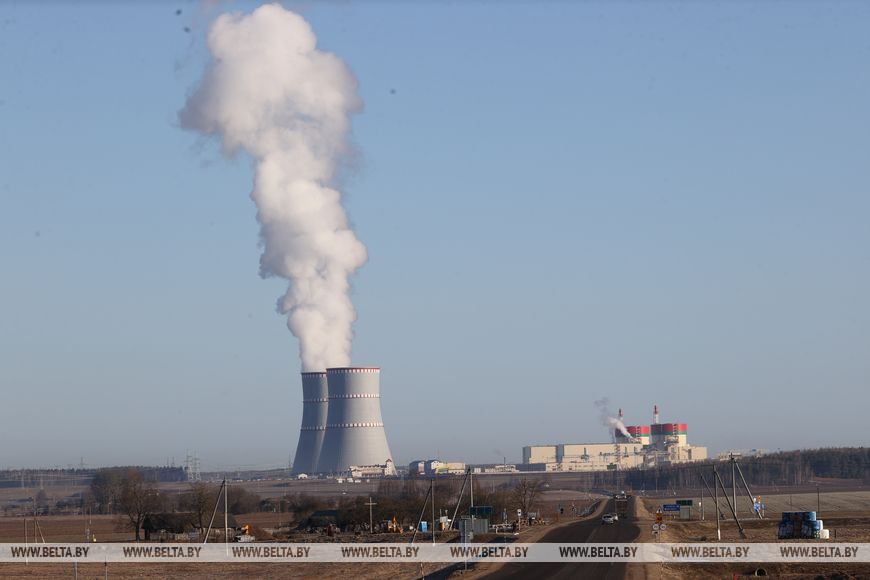Belarus, Russia to take nuclear industry cooperation beyond power engineering
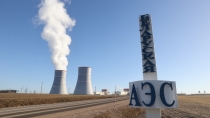
Areas where nuclear technologies are used become more and more versatile every year and now range from healthcare and new materials to agriculture and waste management. Nuclear energy industry remains in demand. Some even say that the world is going through “an atomic renaissance”. It is no surprise that this sphere is a key one in Belarus-Russia cooperation. A delegation of the State Duma of the Federal Assembly of the Russian Federation visited Belarus last week to discuss energy matters. Certainly, the MPs could not miss out on an opportunity to visit the site of the Belarusian nuclear power plant. On 17 March BelTA reporters accompanied the MPs to the nuclear power plant and learned about new Belarus-Russia agreements and prospects of development of the nuclear industry. Our report covers the details.
What did the guests see?
The Belarusian nuclear power plant project is the most technologically sophisticated project of the Union State of Belarus and Russia. It brought together scientific and engineering schools, tens of enterprises and thousands of specialists of the two countries. About 40 Belarusian and Russian organizations took part in the construction of the nuclear power plant. Over 9,000 construction workers were employed at the site at the peak of the nuclear power plant construction work.
The site was a convenient one for discussing the future of Belarus-Russia cooperation in nuclear industry. The Russian MPs were shown how the nuclear power plant operates, what has been accomplished, and what has yet to be accomplished. First of all, the guests saw the nuclear power plant’s central control room. Its operators keep an eye on parameters and manage the flow of electricity and the link to Belarus’ power grid.
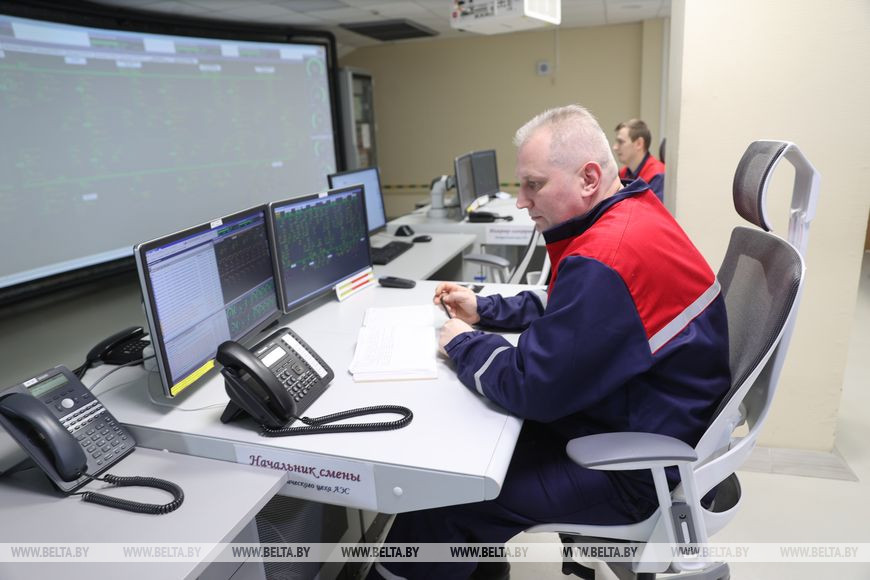
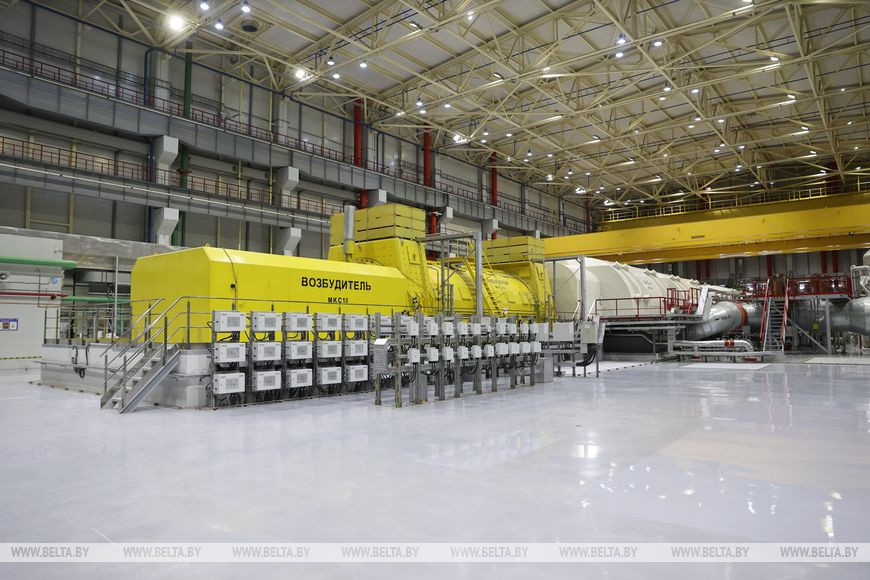
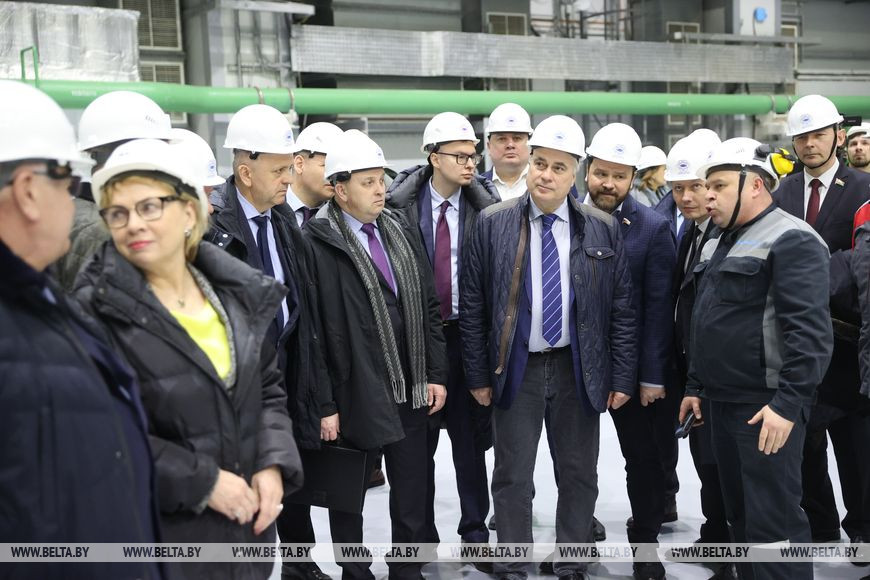
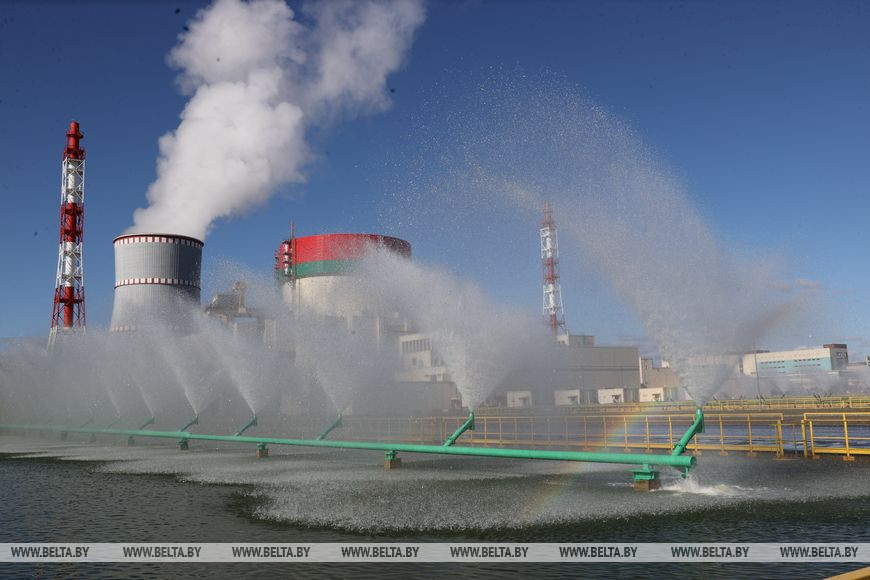
Visitors are rarely taken to see the control room of the first unit of the nuclear power plant but this time we managed to see it together with members of the State Duma. Aleksandr Maslov, Head of the Operations Department of the state enterprise Belarusian Nuclear Power Plant, explained: “From here we can turn on and off the reactor unit. We can carry out all the relevant procedures by the book. The second unit has a control room just like this one. It has already been commissioned.”
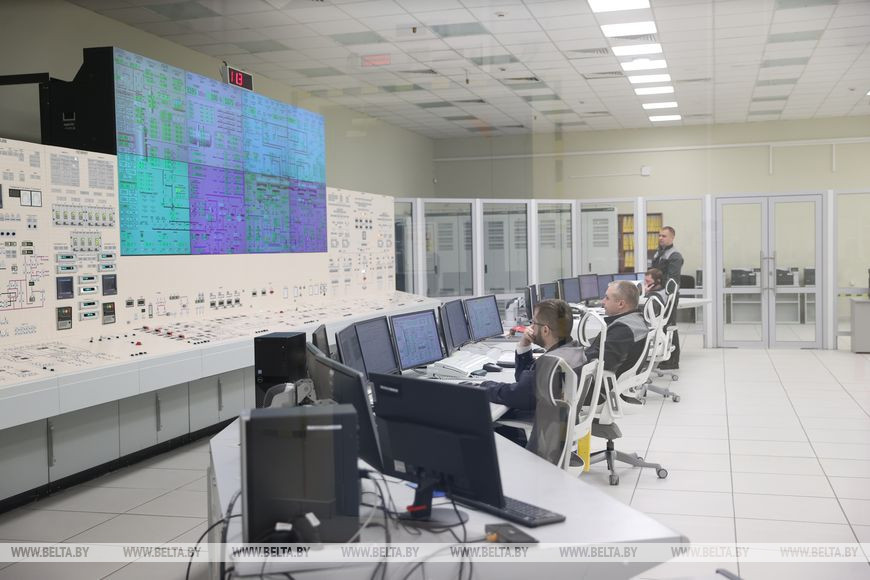
The Belarusian nuclear power plant uses the Russian design AES-2006 featuring two VVER-1200 reactors with the total output capacity of 2,400MW. It is an evolutionary nuclear power plant design with third-generation water-moderated reactors with enhanced safety. They boast improved technical and economic parameters. The building housing the reactor is covered by a double protective shell. The reactor can survive an earthquake, a hurricane, flooding, and even a falling aircraft.
Deputy Energy Minister Mikhail Mikhadyuk said: “When the decision to build the Belarusian nuclear power plant was made, we looked at all the world vendors of nuclear technologies and chose the Russian design. As of today it remains a cutting-edge design. It is a Generation 3+ design and the world’s top-selling one. Out of the seven nuclear power plant units, which construction began in 2022, five units were built according to this design. It speaks volumes.”
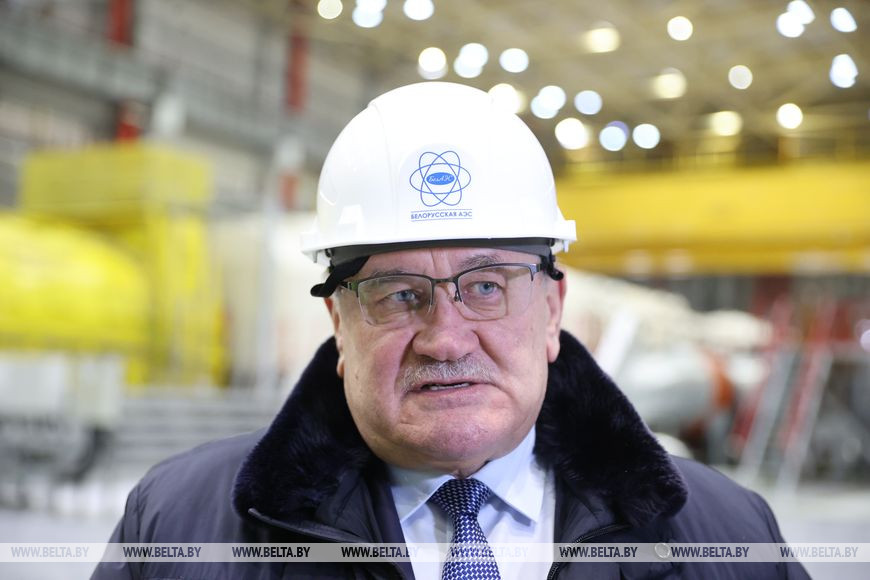
In his words, every nuclear power plant unit has four independent safety systems, which ensure absolutely safe operation. “Every unit is fitted with four diesel generators, which will be triggered by total loss of power. We’ve learned the lessons taught by the accident at the Fukushima nuclear power plant and installed additional movable generators at every nuclear power plant unit. It enables safe operation of safeguards,” the deputy energy minister noted.
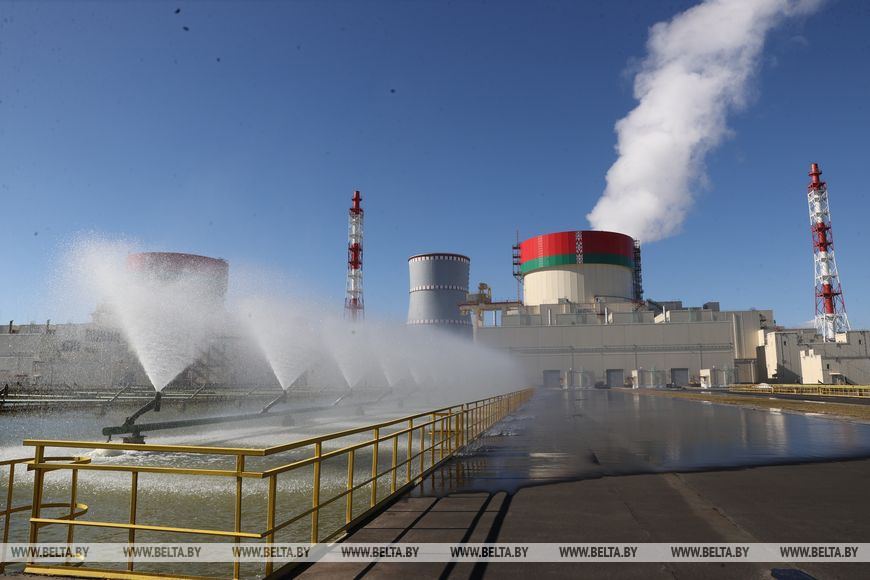
“Atomic renaissance”
Nowadays many countries are considering the development of nuclear energy industry and the construction of new power plants. During the general conference of the International Atomic Energy Agency in 2022 a record-high number of countries mentioned the need to develop nuclear energy industry. A total of 50 states did that, including 27 countries of the European Union.
“Nuclear energy industry is an environmentally-friendly, safe direction. It is energy industry of the future that relies on cutting-edge technologies,” Marianna Shchetkina is convinced.
Deputy Chairman of the Industry and Trade Committee of the State Duma of the Federal Assembly of the Russian Federation Gennady Sklyar shared his opinion about prospects of the nuclear energy industry in the world. “You and I have entered the age of atomic renaissance. The entire world is busy developing nuclear energy industry. Large units and small nuclear power plants are appearing. All of them need a very well-developed production sector. Equipment for nuclear power plants means high technologies,” he said.

Where should Belarus and Russia advance together now?
Belarusian Energy Minister Viktor Karankevich stated that Belarus and Russia intend to reach an even higher level of cooperation in nuclear energy industry. This cooperation may include not only the operation of the Belarusian nuclear power plant, technical support and scientific oversight of the project, the management of radioactive waste, but also new areas of work. Those are energy accumulation systems for power engineering industry and electric vehicles, digital technologies, nuclear medicine, additive technologies, research in the area of agriculture and radiobiology.
Belarus-Russia cooperation is becoming particularly important in view of the complicated situation in foreign policy. “Today’s global confrontation, which was essentially launched by the USA and its satellites against Russia, has affected nuclear industry as well. What can we counter it with? Certainly, with mutually beneficial cooperation with friendly countries. Russian nuclear industry offers not only nuclear-powered energy generation but also new materials and technologies, machines for energy industry, artificial intelligence, waste management, healthcare, and many other things. And we are ready to share all of it with our partners on mutually beneficial terms,” emphasized Pavel Zavalny, Chairman of the Energy Committee of the State Duma of the Federal Assembly of the Russian Federation.
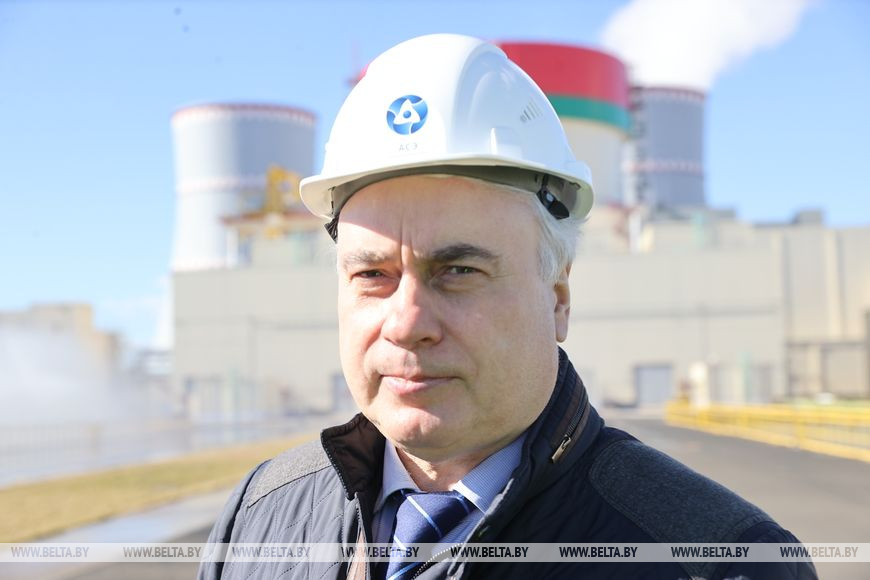
In his words, the Russian state nuclear industry corporation Rosatom is busy setting up a new division that will focus on physical infrastructure. “And from the microelectronics components, which are being created in Belarus, and to the kinds of equipment, instruments that are already being manufactured and can be manufactured in Russia, we will get a modern effective system for managing these most complicated facilities,” the MP added.
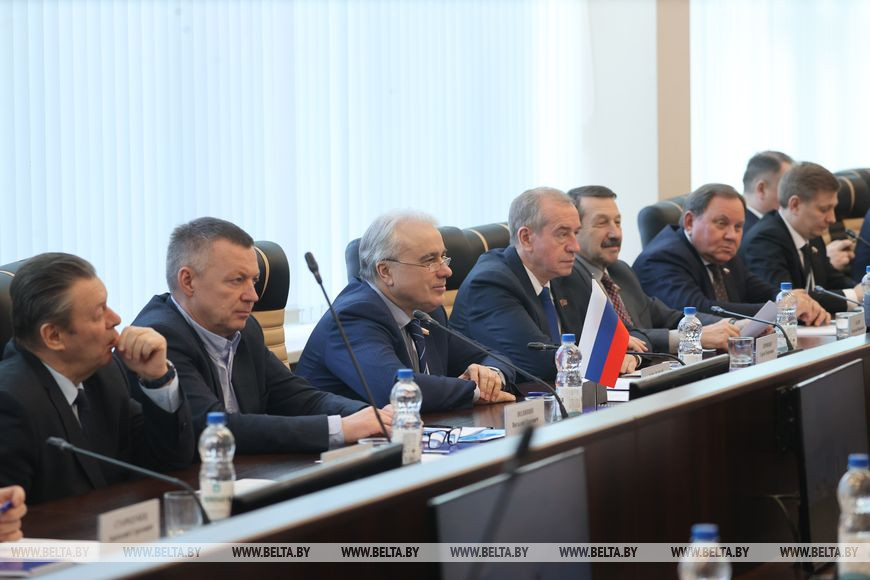 Gennady Sklyar also remarked that human
resources are also of special significance for import substitution: Belarusian
and Russian enterprises need to get specialists capable of dealing with the
most complicated tasks.
Gennady Sklyar also remarked that human
resources are also of special significance for import substitution: Belarusian
and Russian enterprises need to get specialists capable of dealing with the
most complicated tasks.
Some interesting news about supplies of Belarusian electricity to the Russian market has been heard recently. Pavel Zavalny said: “Great prospects for cooperation are opening up before us due to the forthcoming commissioning of the second unit of the Belarusian nuclear power plant. A genuine wholesale electricity market has been created in Russia. Within the framework of integration of our markets the ability to sell electricity of the Belarusian nuclear power plant on the Russian market will become available early next year.”

Rosatom’s role in advancing cooperation
Russia is the country that supplies nuclear technologies to Belarus. Rosatom’s engineering division is the general contractor for building the Belarusian nuclear power plant. Cooperation has also been established in training personnel for the nuclear industry, in shipments of nuclear fuel, management of radioactive waste.
Recently, the potential for cooperation in non-energy sectors has been attracting more and more attention. This includes nuclear medicine (equipment for the treatment of oncological diseases) and electric transport, namely energy storage devices. Ecology, agriculture, digitalization, additive technologies - the list of promising areas could go on and on. Science deserves special emphasis. The Belarusian side has been invited to consider various formats of participation in the international consortium for building a multipurpose research reactor on fast neutrons for joint research.
Nikolai Martyanov, an advisor to the director general of the Russian state corporation Rosatom, remarked that Belarusian and Russian laws on nuclear industry had been synchronized and tight cooperation had been established. The visit of members of the lower chamber of the Russian parliament to Belarus is important for advancing this cooperation and for looking for new avenues of cooperation. Rosatom takes an active stance and plays an important role in advancing cooperation with Belarus.
